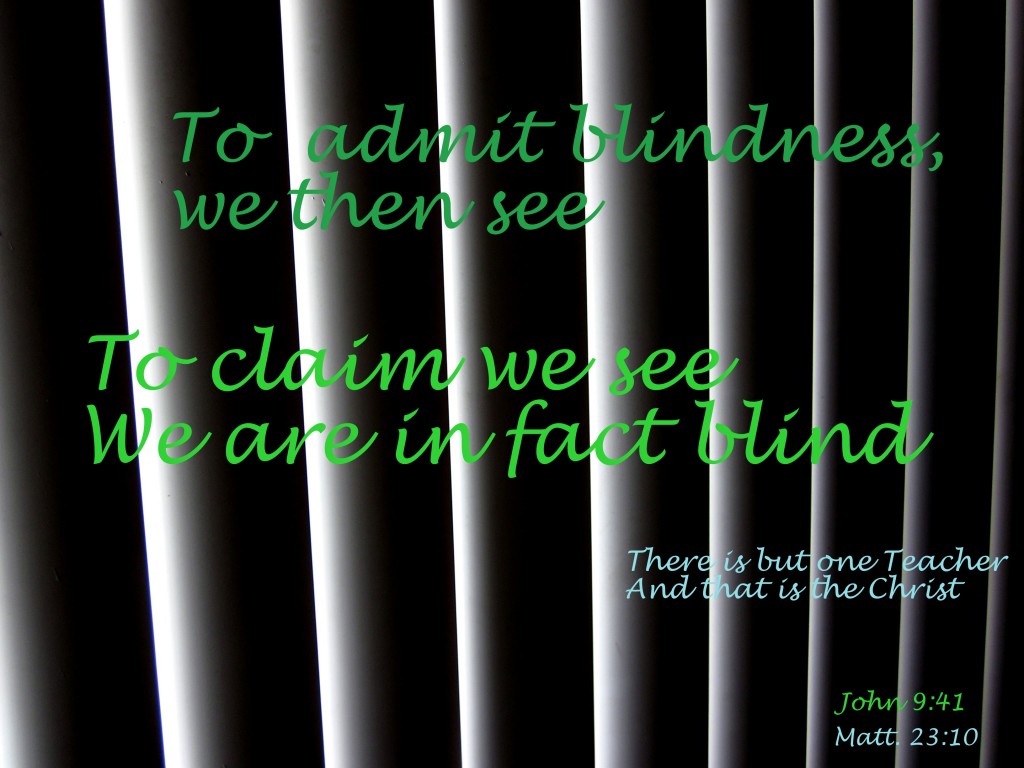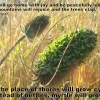Pastor Steve’s Gallery
-
The Trees Will Clap
March 7, 2013“You... -
Healer of My Soul
March 7, 2013Healer... -
Look Down
February 27, 2013... -
Root of Jesse 3
December 23, 2012 -
Root of Jesse 2
December 23, 2012 -
Root of Jesse 1
December 23, 2012... -
Cold Water
August 29, 2012 -
Alone
August 29, 2012When... -
Truth and Love
August 22, 2012Love... -
The Kingdom of God
July 21, 2012The...













Daniel Schulz-Jackson
Hmm. I looked up John 9:41, and I’m not sure I agree with the above interpretation/paraphrase.
I’m an “unsurety junkie” sometimes, so I found myself a bit excited by your reference there, but looking it up (http://bible.cc/john/9-41.htm), the verse says more that blindness brings innocence, and sight brings guilt — i.e. we’re accountable for what we see and know.
SteveKimes
Perhaps you were reading more into my interpretation than I put there. I believe that Jesus is saying that if we admit our faults and weaknesses, then we are ready to repent and so we see ourselves clearly. The Pharisees speaking to Jesus were only looking for blame outside of themselves, not within themselves, and so they were blind.